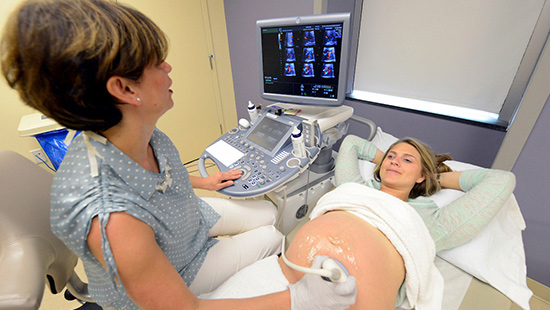Fetal Heart Program

Learn More
Congenital heart disease is a category of heart abnormalities that are present at birth.
The defect usually develops during pregnancy and can often be diagnosed before the baby is born. Sometimes, it isn’t noticed or diagnosed until childhood or later.
Because there are many types of congenital heart defects, each case needs a unique approach and many need long-term care, including the possibility of multiple surgeries.
At the University of Maryland, our team are experts at diagnosing and treating congenital heart disease from before birth through adulthood while helping patients live long, full, healthy lives.
Some congenital heart defects are diagnosed before birth while others aren't discovered until later in life.
If the possibility of an abnormality is discovered during routine pregnancy exams, you may be referred to our fetal heart team for further testing. Using a fetal echocardiogram, our team can see what's happening in your baby's heart as early as 11 weeks into your pregnancy.
For children or young adults, the first sign of heart disease may be a heart murmur. The UM Children's Heart Program are experts in using echocardiograms and will help you find out exactly what is causing the heart issue.
Most of the time, we don’t know the cause of congenital heart defects. There are some associated risk factors, including:
We offer cardiogenetic testing to determine if family members are at risk for developing heart disease.
We evaluate each person individually and will discuss treatment options with you thoroughly while finding the best option for you and your child.
Sometimes, no treatment is needed and we will monitor the disease over time. In other cases, medication can help manage symptoms.
Other times, surgery is the best option. This could be one surgery, or multiple surgeries over the course over several years. Our pediatric heart surgery team has years of experience performing complex pediatric heart surgeries.
Learn more about the different types of congenital heart disease, and our approach to diagnosing and treating each one.